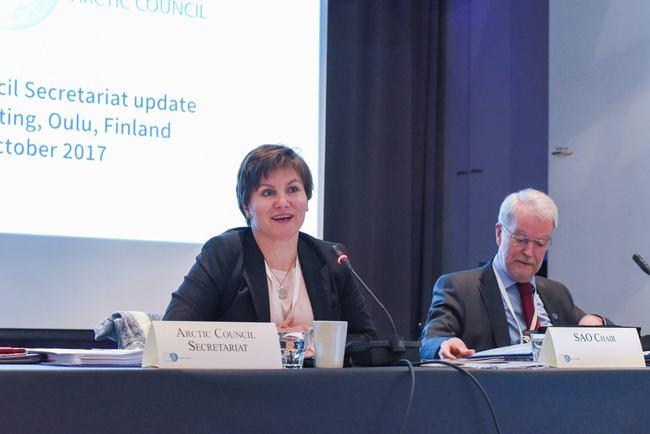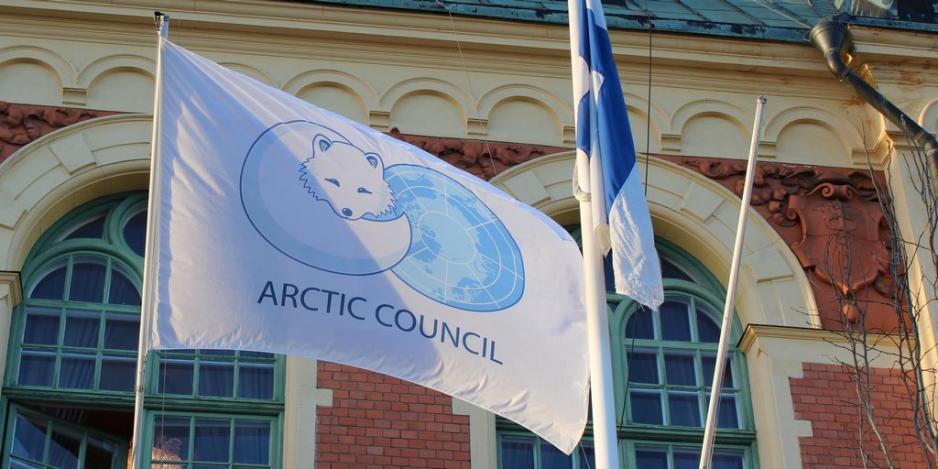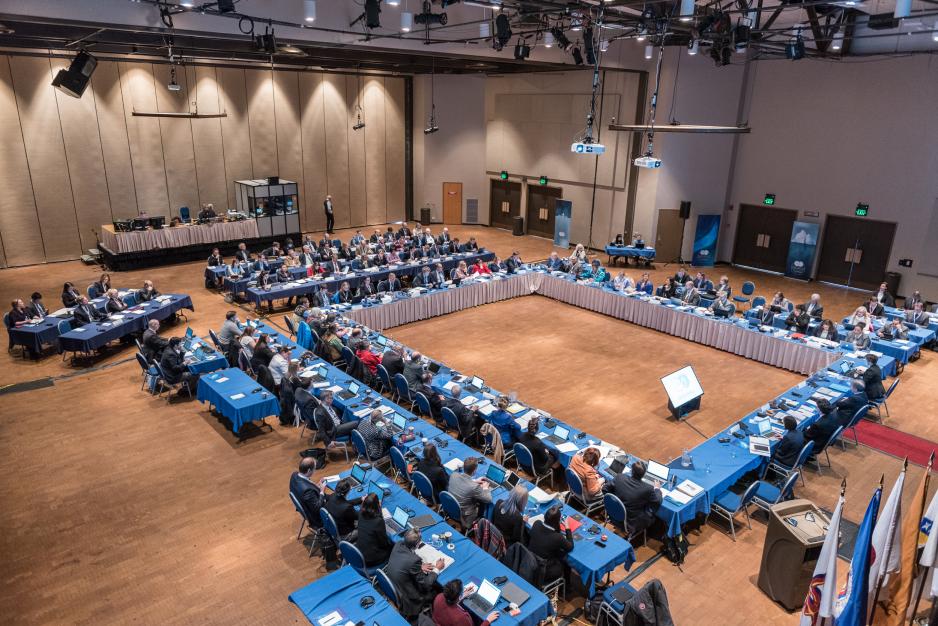Early birds and late to bed for the Arctic Council

Nina Buvang Vaaja (44) has a heart that burns for the High North. She is to lead the Arctic Council Secretariat for the next four years.
- I have worked with High North issues since 2001. I have lived in Russia for two years, have served abroad and I have a heart for the Arctic. Now I am starting exciting and busy years as Director of the Arctic Council Secretariat, Vaaja says.
The secretariat of the AC is permanently established in Tromsø and has been created to run the day-to-day operations of the Arctic Council.
- My job is about planning and conducting meetings at various levels. All the way from experts to researchers, public management or ministerial levels. I am to lead 13 employees in a secretariat that is still in a building phase where we are expanding and finding our way, Vaaja says.

Early rise, late to bed
The Secretariat is funded by the Arctic 8, the Arctic member states of the Council; Canada, Denmark with the Faroe Islands and Greenland, Finland, Iceland, Norway, Russia, Sweden and the USA.
- We are completely dependent on having the trust of the member states and on their trusting us to do a proper job. It is all about confidence, about our facilitating the political debate without the member states even noticing the practicalities and organizing that lies behind meetings, Vaaja says.
It is busy behind the scenes. Vaaja comes from a week of various meetings in Oulu, Finland. The Arctic Council has expanded and what would earlier take two or three days may now last up to a week.
- We are the first ones to arrive and the last ones to leave. We rise early and go to bed late. We are responsible for the right documents reaching the right recipient, for people to get their notifications and for all inquiries to be directed to the right place, capital or expert group. We are not a political entity, but rather an administrative body facilitating, organizing and bringing it all together, Vaaja says.

Pollution and education
During this year’s meeting in Oulu, Finland, the first Arctic Council meeting after Finland took over the chairmanship from the USA, two issues stood out, according to Vaaja:
- Number one was pollution, number two was education. And when themes like these are on the agenda, the Arctic Council tries to approach this from different angles and across various groups of experts. It is all about getting presentations from those who work with this and then look at what needs to be prioritized. In essence, it’s about getting an overview, Vaaja explains.
Education being a theme for the Arctic Council is a rather new thing.
- Finland has placed it on the main agenda. Each country is responsible for its own curricula when it comes to education, however, there is still much to learn from each other when it comes to situations that are similar and challenging all across the Arctic, Vaaja says.
One example can be education for nomads and reindeerherding Sami – indigenous people who do not live permanently in one place.
- How to facilitate education through connecting via telephone and satellite connections was one topic of discussion. Today, that is impossible in the most remote places in the Arctic and through that the debate becomes bigger than itself. Education is connected further to internet, phone connections and satellite opportunities. ‘Connectivity’ is another high priority of the Finnish chairmanship, and it was good to see many of the themes in relation to each other, the Director says.
Everyday life
And that is just the kind of arena the Arctic Council is. Meeting around the table, seeing each other face to face. Having a place to present oneself and one’s High North context. A place where the people who listen understand you and can contribute.
- It is often about exchanging experiences. We celebrated our 20th anniversary last year, and the fact that we exist, that eight Arctic states gather and discuss overarching topics is important. It has to do with our everyday lives, even though that may be hard to see in the larger picture, the AC Director says.
She also argues that the six permanent representatives from indigenous people contribute to important perspectives.
- We are reminded that the Arctic Council is about people and their lives. That has a great value, however hard it may be to assess. Nevertheless, the Council has survived for 20 years, despite geopolitical tensions on different levels through the past few years. I think that goes to prove that the Arctic Council fills a key role, Vaaja says.
Big responsibility
Vaaja feels the heavy responsibility of being Director for the logistics and the behind-the-scenes of the Arctic Council.
- I feel the responsibility to contribute to continued development, operations and maintaining a peaceful Arctic, the Director says.
Her role in the time ahead involves a long-term goals that requires work.
- When Oulu and my new role has sunk in properly, we must think and plan our work ahead. It has been decided to develop a new and future 10-15 year strategy for the Arctic Council. That is Finland’s main priority for the next two years, and we will support them in that work, Vaaja says.
It will be an overall strategy for the circumpolar Arctic.
- There are great differences between North Norway, Greenland, Alaska and Canada, for instance. Yet we have many similarities too. There are vast distances, we have a climate that is changing, we have more extreme weather and we all have an indigenous population that should be balanced towards the rest of the population, she says.
It is therefore important to maintain dialogue, share knowledge and plan strategies based on experience.
- We have much in common if you look deeper than the immediate appearance that meets the eye when you arrive at an airport, that’s for sure, the new Director says. She is passionate about a good Arctic – also behind the scenes of the big decisions.
Les artikkelen på norsk
